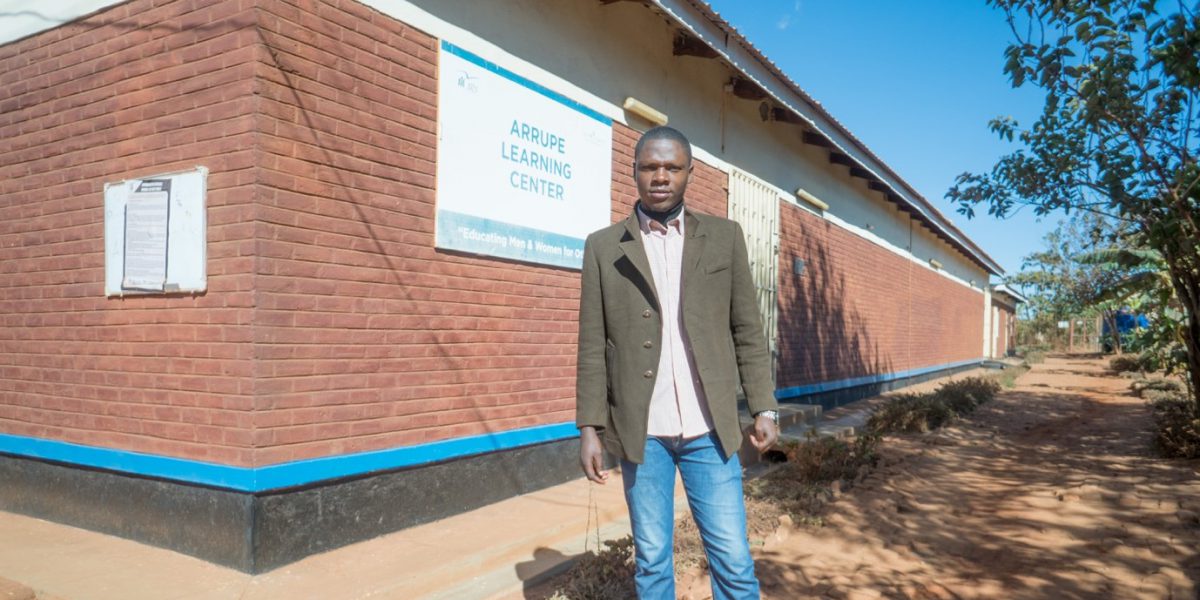Malawi: Becoming future tech leaders in Dzaleka refugee camp
17 August 2020

“I have learned that life is more than being a refugee, relying on food rations, and waiting for resettlement. It is more about learning for life through every opportunity granted. This is what Jesuit Refugee Service (JRS) Pathfinder is about,” says Stany Mwamba Dibwe, whose personal and professional journey is a manifestation of the Pathfinder approach adopted by JRS in the provision of professional and post-secondary education and livelihoods programs. “The project seeks to empower us to be leaders that not only live in a camp, but live a productive life and contribute positively to their communities,” says Stany.
Stany had already completed high school when he arrived in Dzaleka camp in Malawi alone in November 2017, fleeing violence and conflict in his home country the Democratic Republic of Congo. He learned computer programming at the AppFactory, a project run by UNHCR in partnership with Microsoft which trains young refugees in various computer skills, including the development of computer and smartphone applications.
“Career pathways were not clear when I finished the AppFactory course. As a refugee in Malawi, it’s not easy to get employment. When I heard the JRS’s Digital Inclusion Programme (DIP) will offer the possibility of working online and earning income, I gathered my strength to take advantage of this unique opportunity.”
JRS’s Digital Inclusion Programme (DIP), offered in partnership with Konexio, a French technology start-up, provides training in various computer skills to young Francophone refugees to equip them with skills to take jobs online and earn income. The first course was initiated in July 2019. The training is designed to offer both online learning and onsite instruction by course facilitators. After completing coursework for three months, course participants proceed to freelance work which is the practical part of the training. During freelance training, students explore various platforms they can use to acquire jobs online.
Stany attended the first course and graduated top of his class. He has since been recruited by JRS as an IT Assistant and course facilitator for the second course that started in February 2020. He was also able to find jobs on an online platform for freelancers and improve his livelihood. Jobs include translations, writing, administration support, and voice recording.
The income he has been earning has changed Stany’s life. It has given him purpose, hope, and pride. “DIP has exceeded my expectations and it has taught me to be resilient,” Stany explains. “Being alone and without any financial assistance, it wasn’t easy. Such helplessness messes with your brain. The opportunity that DIP offered me allows me to earn my financial freedom by being self-employed online. My life is no longer the same, and I am also able to assist the community in a way.”
Stany now feels empowered and proud that he is able to depend on himself for financial support. ”Being equipped with skills that have a livelihoods outcome is more vital than just being provided with money, clothes and food,’ he says. “We all sometimes believed that it was impossible to earn a living on the Internet, but now we are able to do it thanks to JRS and Konexio. For those stuck in camps, DIP students are proof of the importance of studying in general, and in particular freelance training at JRS.”
Learn more about how JRS is protecting the future of refugees by adapting our education and livelihoods programs during COVID-19.



